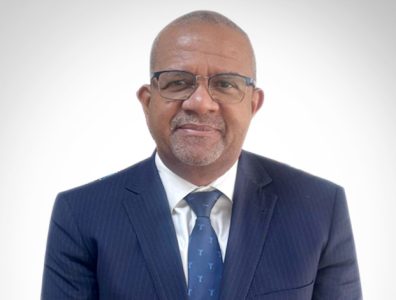
Amílcar Aguiar, president of the executive council of BIC Seguros, talks to The Energy Year about how the company has evolved in Angola’s insurance sector and how it is seeking to expand its presence in the country’s oil and gas and mining sectors. BIC Seguros is the insurance arm of Banco BIC.
How has BIC Seguros evolved over the past decade in Angola’s insurance sector?
We’ve grown gradually over our 10 years in the market. Our strength lies in bancassurance, leveraging Banco BIC’s extensive network across Angola. We benefit from both direct sales and the bank’s distribution channels, reaching even municipalities where we lack a direct presence. Despite this structure, I believe we should be growing faster.
We’re implementing digital platforms to increase our policyholder base and addressing Angola’s low insurance penetration. There’s a general lack of insurance culture, which we are actively working to change. One initiative is our package for residents of government-built urban housing developments. Many of these homes lack insurance, so we tailored accessible policies priced around AOA 75,000 [USD 81.4], payable in instalments.
Recent incidents, such as the gas explosion at the Rosalinda business and residential condo and Metropolitan University’s fire have highlighted the importance of insurance. Unfortunately, awareness often comes too late. For instance, we handled three claims on an offshore platform in Cabinda where our client was fully covered. These situations validate the importance of our role in society and build trust.
Is the oil sector becoming a more prominent part of your portfolio?
It’s a highly profitable sector, though our market share in petrochemicals remains small. We’re striving to expand, especially in regions such as Cabinda. The sector is relatively closed, so we’re building networks and participating in local-content initiatives.
We frequently join co-insurance policies and serve local-content providers in oil and gas. Banco BIC’s oil and gas division gives us an edge.
Trust and loyalty are vital. Often, relationships are solidified during claims. Clients confirm whether you truly deliver. A poorly clarified contract can be a breaking point. We aim to be present at industry events to showcase our reliability and offerings.
Are you also targeting Angola’s expanding mining sector?
Yes, and we’ve initiated work with a few mining companies, but there’s significant room for growth. The mining industry is key to Angola’s economic diversification strategy, and we intend to increase our presence, especially in the provinces of Lunda Sul and Lunda Norte.
We’ve engaged companies such as Catoca and are planning to expand to Saurimo and other regions. So far, our penetration is modest. However, mining, oil and aviation are sectors with heavy assets and major insurance needs.
What role does machinery and equipment coverage play in your business?
We insure heavy machinery used in mining, including trucks, excavators and leased equipment. Though few in number, these clients are active and essential to our portfolio.
We prioritise reinsurance in BIC Seguros’ risk management. Partnering with top world firms such as Swiss Re, Munich Re and Africa Re is crucial. It took 10 years to include Munich Re in our reinsurers pool, but since 2024, we are working with three of the world’s top four reinsurers. This strengthens our underwriting capabilities and risk sharing.
A USD 24-million industrial fire claim in our second year tested our resilience. We advanced 50% of the payout before final resolution to ensure that our client could restore his paralysed operations after the fire. Such partnerships are critical. We only take on risk when we have robust support in place.
How does financial transparency support your competitiveness?
Strong liquidity is essential. Oil companies scrutinise financials before signing contracts: investments, cashflow, everything. We were recently recognised for meeting all financial disclosure deadlines and for the quality of our report.
Transparency gives us a competitive edge in tenders. We have no outstanding debts, and our finances speak for themselves. We are known for being a boutique insurer. We don’t underprice or take on risk carelessly. Our rates reflect real value.
In the health segment, where we are a market benchmark, brokers often recommend us when competitors offer unsustainable quotes. Ultimately, the client’s choice prevails, but the broker’s role is to advise and protect.
The reliability of insurance depends on the strength of the insurer. Selling a policy is just the beginning; the real test is in the claim.
Source: Theenergyyear.com
